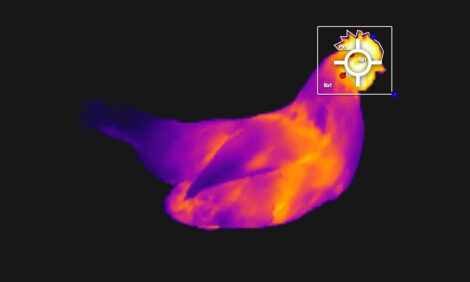



Potential for Probiotics to Prevent Reproductive Tract Lesions in Free-range Laying Hens
Reproductive problems that lead to a drop in egg production and sudden deaths were reduced in free-range hens in this Australian experiment when the birds received a commercial probiotic around the onset of lay.A study was undertaken at the University of Queensland to investigate the ability of two commercial probiotics applied in free-range laying hens (from 18 to 22 weeks of age) in reducing the occurrence of reproductive tract pathologies, and improving hen health and performance.
In the CSIRO journal, Animal Production Science, S. Shini and colleagues explain that they transferred a total of 630 17-week-old brown layers to a freshly cleaned free-range laying facility, and randomly divided into three groups, with three replicates of 70 birds each.
Both probiotics were administered in the drinking water (Groups 1 and 2) on a daily basis for four weeks, while Group 3 was left untreated.
At 38 weeks of age, the results demonstrated that treatment with either probiotic significantly reduced the occurrence of reproductive tract pathologies (control versus probiotics, 33 per cent versus 22 per cent and 11 per cent; P<0.01), mortalities (control versus probiotics; 3.8 per cent versus 1.5 and 1.9 per cent; P<0.01), and increased the performance of hens, for another 20 weeks post-treatments (hen day production for control versus probiotics 75 per cent versus 90 per cent and 94 per cent; P<0.01).
Birds treated with probiotics maintained their bodyweight and egg weights at standard ranges, while untreated birds did not perform at this level.
Although the researchers report they were unable to show any effect on cloacal bacterial colonisation, the results of the present study provided some initial evidence that reproductive pathologies, which often cause drops in egg production and sudden deaths of birds, can be reduced if free-range hens are treated with a commercial probiotic before or during the onset of lay.
The use of a probiotic benefits the health and performance status of hens, resulting in better hen welfare and significant economic gains to egg producers, concluded Shini and colleagues.
Reference
Shini S., A. Shini and P.J. Blackall. 2013. The potential for probiotics to prevent reproductive tract lesions in free-range laying hens. Animal Production Science. 53:1298–1308.
December 2013








